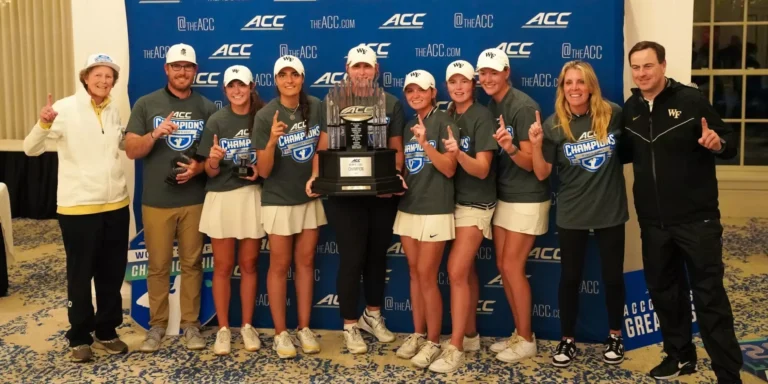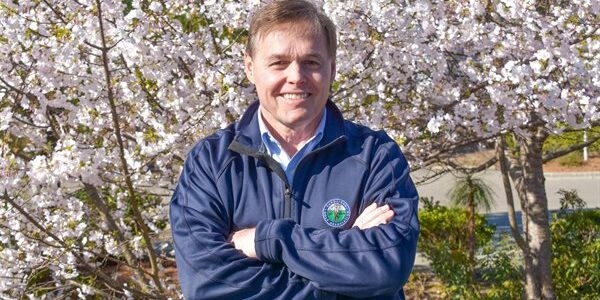It all happened pretty fast without advance planning. Within a few weeks, Geoff Dail, golf course superintendent, club general manager and dirt-moving contractor, became head of a company managing a handful of courses in a variety of arrangements.
“Basically, I had three offers at the same time,” said the 51-year-old Greensboro native of the attractive employment options that awaited his decision in early 2019.
He could continue as superintendent at Forest Oaks Country Club, restoring the course where he worked on the grounds crew in high school and later served a combined 14 years as an assistant superintendent and superintendent.
He could go to Oak Valley and Meadowlands, both owned by a former employer who wanted him to revive them from faltering conditions.
Or he could go to Asheboro’s Tot Hill Farm, a much-heralded Mike Strantz design in great need of renovations and improved conditioning.
Dail didn’t want to choose between the jobs. He wanted them all. So he sounded out his suitors. Each had reached out to him.
He had a long relationship with Tadashi Hattori of Nasshin Corp., the owner of Forest Oaks. He had also knew Pete Ramey, the owner of Oak Valley and Meadowlands, courses in Davie and Davidson counties, respectfully, convenient to Winston-Salem. The relationships at Tot Hill Farm were a little more complicated with 11 ownership partners, but the layout had incredible potential.
Dail remembers his discussion with Ramey, who embraced Dail’s proposal.
“I told Pete, ‘I want to do it on my own terms with my own business.’” Dail recalled. “He said, ‘”OK. I support you.’”
Tot Hill Farm’s partners were also agreeable to hiring a company put together by Dail, who soon partnered with late golf professional Anthony Miller in a full management deal at Forest Oaks.
“‘Everybody was like, ‘We support you 100%,’” said Dail.
In the matter of a few months, Dail was transformed from a course superintendent and single-site manager into the owner of a multi-faceted golf management business offering construction services, agronomical management, and operations of all club facilities. He also provides food and beverage service as well as handling accounting and administrative duties.
Dail Golf has managerial or consulting contracts — with varying responsibilities — with at least seven courses or golf clubs. The company also has current construction projects at two others and is negotiating for more. Plus, Dail is an ownership partner at Oak Valley.
Ownership has changed hands at each of Dail Golf’s original clients. Lee and Eddie Stephens bought Forest Oaks. Charleston, South Carolina, businessman Pat Barber bought Tot Hill Farm.
Former childcare operator Bob Greear bought Oak Valley and Meadowlands, adding to a stable that includes Caswell Pines in Yanceyville and Draper Valley and Holston Hills in southwest Virginia.
Barber retained Dail Golf, which handled extensive renovations at Tot Hill Farms before it reopened last fall in mint condition with Zoysia greens. Dail maintains a full agronomical management contract with Tot Hill Farm.
Greear not only retained Dail at Meadowlands and Oak Valley, where Dail had supervised renovations. But he hired Dail Golf to deals at his other three courses, including Oak Valley, where Dail became a partner.
“He’s so dependable,” Greear said of Dail. “Geoff is so helpful and knowledgeable. I doubt there are more than a few out there with the variety of experience he has. He’s involved in just about everything we do.”
That was the start of Dail Golf. Though Dail continued to manage Forest Oaks through an owner transition, he elected to leave when the club told him they wanted him to be a full-time staff member.
About 2 1/2 years ago, members at Siler City Country Club hired Dail Golf to a full management contact that included handling more than $700,000 in course and other facility improvements as well as taking over the pro shop, tennis courts, swimming pool and restaurant and bar.
Dail Golf’s construction division also handles outside projects. A crew spent several months in Indiana to rebuild bunkers and build tees at Country Club of Indianapolis, host of this year’s Indiana State Amateur. Dail Golf currently has other projects ongoing at Heritage Club in Wake Forest and Chapel Ridge at Jordan Lake in Pittsboro.
“We’re talking to several other courses about doing some substantial projects,” Dail said. “We’ve got some irons in the fire.”
How was Dail able to adjust to running all facets of a country club?
He credits a three-year stint as general manager at Forest Oaks from 2008-2011 when Troon Golf had a management contract. He later worked as a superintendent then regional agronomist for Pinnacle Golf, supervising maintenance at Meadowlands, Bryan Park, Stoney Creek and The Challenge in Graham.
Though he didn’t do it intentionally, Dail had prepared himself well for his current business during his student days at N.C. State, where he changed majors several times before earning a degree with dual majors in agronomy and business. During summers, he worked on the grounds crew at a few Triangle courses.
Prior to suffering an eye injury, Dail’s original goal was to go to Navy Flight School after college. Instead, he took a job as assistant superintendent at Forest Oaks, where he played a major role in renovations in 2002, when Davis Love III’s design group made $3.5 million in course renovations for Greensboro’s PGA Tour event.
As he gained experience, Dail learned how to perform tasks outside course maintenance. He served as general manager at Forest Oaks for 2009-2014.
“My ultimate objective at one point was to know everything about this business I could to be able to manage any facet of any country club,” he said.
Dail’s interest in construction began as a way for him to save employers money by doing projects such as bunker repair or rebuilding tees in-house. Dail Golf owns some equipment, which is moved between client courses as needed. It also rents equipment.
“My original intention was not to own a golf course construction company, but to have a resource for our clients to save them money,” said Dail. “We do that, and it does work. There’s a lot of golf courses that might have a great agronomist but not the construction expertise you need a couple times a year in the business.”
Buying in scale is another advantage Dail Golf offers. With multiple courses buying in heavier volume, Dail saves money in equipment, staffing, labor, fertilizer and chemicals.
Dail said he is a big fan of Raleigh-based McConnell Golf, which owns most of the 16 courses it manages, most of them prestigious clubs in the region including Sedgefield, The Cardinal by Pete Dye and Old North State. McConnell hasn’t only improved clubs’ bottom line — it’s improved facilities.
“Volume purchasing was one of our biggest objectives,” Dail said. “At the same time, the idea for Dail Golf was to offer its clients a resource that can make their club grow.”
At Siler City Country Club, Dail Golf took over a facility in need of updating and upgrading. Hal Milholen, one of the board members, said Dail Golf made noticeable improvements, in area ranging from the greens and fairways on the course to the restaurant menu. Milholen said the club needed some fresh energy.
“But when they came on board, things changed dramatically,” Milholen said. “The board made a very, very good decision to hire Dail Golf.”
Satisfied clients has produced a growing company. Dail estimates that his company has grown to more than 70 employees in its short existence. The core leadership includes vice president of course maintenance Ben Smith and construction superintendent Brandon Eaton. Rick Dail, Geoff’s brother, joined as vice president of business operations in August. Jenna Marrocco came aboard as director of marketing last fall.
During lunch at Siler City, several members exchanged greetings with Dail, who said he enjoys interacting with members, especially those at smaller clubs that have remained loyal and active throughout hard times.
“He’s as good of a human being as he is a grass grower,” said Greear.
With its sudden start, the company never made self-promotion a priority. Instead, the founder’s reputation brought in business. But Marrocco is in the process of catching up with a company website, a Facebook page and other social media platforms.
“(Geoff) is Dail Golf,” said Marrocco. “He got all this business just from word of mouth and how good he is.”
What Dail doesn’t do on a golf course is play golf. Though he grew up with a family membership at Forest Oaks and he’s spent much of his life working on courses, he avoids playing the game.
“He can’t walk down a fairway without stopping to fix something that needs to be fixed,” said Rick Dail, who also rarely plays.
The next progression for Dail Golf? Maybe owning the courses where his company works.
“That’s a goal,” Dail said. “I’ve always worked at the golf course. I never played. It’s been fun.”









